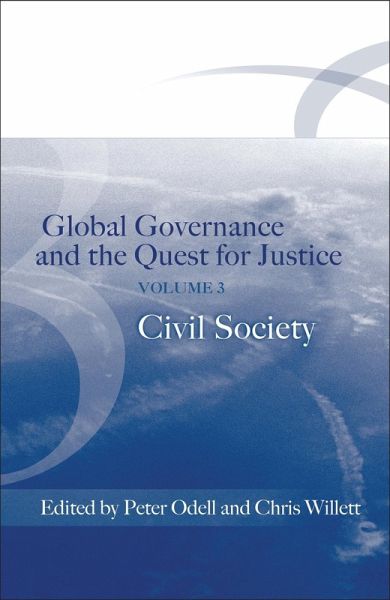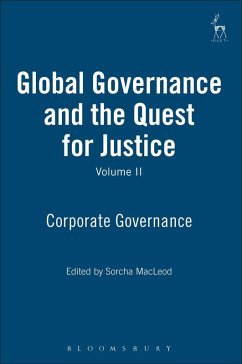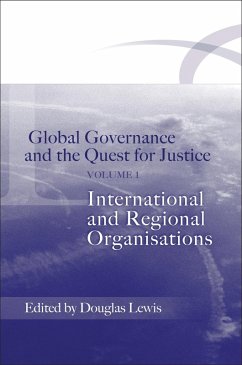
Global Governance and the Quest for Justice - Volume III (eBook, PDF)
Civil Society
Redaktion: Odell, Peter; Willett, Chris
Versandkostenfrei!
Sofort per Download lieferbar
33,95 €
inkl. MwSt.
Weitere Ausgaben:

PAYBACK Punkte
17 °P sammeln!
This book - one in the four-volume set,Global Governance and the Quest for Justice - focuses on themes of citizen organisation and empowerment set in the context of globalising legal processes. Chapter One sets the scene. Chapters Two, Three and Four focus on various challenges that globalisation poses for private law. How does substantive contract and tort doctrine that has been developed (mainly) for use within national legal systems adapt to more globalised dealings and wrongdoings? Should the source of regulation be private international law, harmonised national law, international accords ...
This book - one in the four-volume set,Global Governance and the Quest for Justice - focuses on themes of citizen organisation and empowerment set in the context of globalising legal processes. Chapter One sets the scene. Chapters Two, Three and Four focus on various challenges that globalisation poses for private law. How does substantive contract and tort doctrine that has been developed (mainly) for use within national legal systems adapt to more globalised dealings and wrongdoings? Should the source of regulation be private international law, harmonised national law, international accords (or some combination)? Chapters Five, Six and Seven focus on issues relating to access to justice (as a mode of empowerment) and its impact on the functioning of civil society. These chapters highlight a variety of procedural, professional and institutional challenges for access to justice in a globalised world. Chapter Eight considers how we are to reconcile the competing visions of the basis on which essential services are to be provided. In a global marketplace, is there any room for local values or for values other than those of free-market thinking? Finally, Chapter Nine focuses on the question of democracy in a globalised world. If civil society is to retain its political vitality, how are citizens to remain engaged and enfranchised as a new global politico-legal order takes shape?













